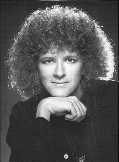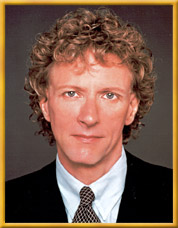Taoism

"Existence is beyond the power of words to define.
Terms may be used, but none of them are absolute.
In the beginning of heaven and earth, there were no words.
Words came out of the womb of matter.
If name be needed wonder names them both.
From wonder to wonder existence opens."
- Lao Tsu
The essence of Taoism is really expressed by these few words. Taoism is the way of the child, the way of the fool, the way of someone who doesn't need to be noticed.
The primary quality that Lao Tzu seems to emobdy is humility, which is the image of water -- seeking the common level of existence.
Taoism is the way of water. The most frequent element or symbol refered to in Lao Tzu's wrtings is the symbol of water.
![]()
Water is the symbol of pure consciousness.
Water always seeks the easiest path, the common level of life.
Taoism is the gentle way. The path of least resistence.
When it reaches a blockage, water find the easiest path around the blockage, or it continues to assemble, and flows over the blockage.
Water uses itself to go beyond whatever it needs to go beyond.
The Grand Canyon is living evidence of the power of water over a period of time. The power may not manifest immediately. Water can be very powerful, like a tidal wave.
Lao Tsu says the way of life is water, to be fluid.
Lao Tsu uses the anology of the tree. The old hard tree breaks and falls when the wind blows. The young tree bends and does not break. He advises us to bend and not to break.
Wisdom is knowing that if you bend, you don't have to break. Sometimes it is necessary to go with the flow of life.
Lao Tsu always points a finger directly to us. He says we must begin with ourselves. It's impossible to bring order into the world unless we bring order into ourselves.
If you are interested in Taoism, I would suggest that you read the Way of Life by Lao Tsu, the founder of Taoism. I personally prefer the Witter Brynner translation.
Lao Tsu doesn't seem to hold to much stock for words or phrases or teachings.
Lao Tsu says the way of life is ancient, timeless. It is existence which he calls the Tao -- a mysterious source, beyond understanding, and all of us are a reflection, if not that source of life ourselves.
Lao Tsu found Taoism easy to reconcile withthe world of human beings, which is interesting because with all the nature imagery, one might think it was in some way antithetical to contempory life.
Many sections are taken up with political discussions and how the way of the ruler, the merchant, the householder, and the army interact with the Tao.
Taoism has no rules. It's a suggestion for preceiving life in its wholeness, without unnessary categorization, yet enjoying the beauty of categorization.
Taoism is not a religion, although perhaps it has been made into one by some people. Lao Tsu's way of life occurs in any spiritual philosophy.
There is another kind of wisdom, the wisdom of following - the wisdom of not taking the lead with your ego.
In the West the wise are usually thought of as leaders. In the East, the wise are very often though of as followers.
We know we should be completely humble. We should stop thinking that we're very marvelous because we're not. We are interesting at best because we are a part of life.
Taoism shows us how to deal with life and death by realizing everything here is transitory but its substance is eternal:
"The sound man, immune as to a sacrifice of straw dogs,
faces the passing human generations."
- Lao Tsu
We should not weep or cry or be upset when we see the generations pass, because all are forms of the infinite creation. They are not real, they are not eternal.
Just as when water is frozen in to a form as ice and then melts -- so at the time of death, there is no death. The spirit simply changes form.
Some people think Taoism means not doing anything, just going on with your life. That has little or nothing to do with Taoism.
Taoism means streching your being, becoming both a man and a woman and joining within yourself, to be the heavens themselves, to stretch your awareness beyond the breaking point until all opposites are reconciled within yourself.
Enlightenment comes through the feminine side of the being.
Examine everything that you've been taught, not simply what you've been taught in school, but the images that have been held up to you since the time of your birth.
Get some distance on yourself and undertand the multilevel structure that's operating. There's a power structure within you. You're a very political creature.
For a person who lives in time, differences are the most important thing because they represent your existence.
When there's no difference, there's no time, no world, no separativity -- and there's no you ... nor is there an I.
Initially there's absolutely nothing.
When we have complements or oppositions, change occurs.
Change can only exist in time. Without time there is no change. Change can only exist with a background of that which is changeless, otherwise it has no definition.
We can say the stars are moving because we have a relative context.
If there's no background, no foreground, no opposition, no complements, then there's no change becasue there's no subject and object.
The Chinese used the symbol of tai chi, the undifferentiated reality - no separation, no left and right.
Before perception, before a preceiver, existence was -- is. This is the consciousness that we refer to as nirvana, God, eternity.
There is no way to measure it ... because there's no one to measure it.
Everything is part of one web, one matrix of existence, beyond discussion. This is our true self in its undifferentiated form.
We create ying and yang, yes and no, plus and minus.
Most beings enjoy existence so time comes into being.
When there is time, there has to be suffering. Because in time there's desire and attachment and transition. This is the world of experience.
There are two choices available in duality -- one side or the other side. Everyting is formed from that.
The mind of the child is not formed. We are shown that this is life, this is the world.
Our seeing is sexual initially.
Gradually, you were given a description of the world, a way of seeing, which is largely sexual.
The strongest factor in conditioning is sex, in the sense that the first thing that a person is really taught is whether they are male or female.
Male and female are the first things we learn because they represent the polarity of existence.
Conditioning begins with a sense that -- I am this and everyone else is that. I am male or I am female. My brother wears pants my sister wears a dress. My sister is not as strong as my brother because she is a woman. I'm a little girl therefore I have a doll and I'm going to be like mommy.
We really have no choice in the matter. We are given a description of the world that is much more potent and much deeper than you might realize.
We can think of descriptions almost as computer languages, an operative description that only deals with very simple operations. Its code is sex -- Male, female, dark, light, up down, in out -- its the language of duality.
The limitations that we can see of the sexual description of reality are very apparent. Very few men attain enlightenment, even fewer women.
There's a sense of productivity which cripples us terribly. We either have to be doing something worthwile or not. -- We are back to our little binary male-female code.
It's either good, bad or somewhere in between. It's either ying, yang or it's a combination. You're either male, female or somewhere in between. You've got to be somewhere on the map.
In the West when you talk about yin and yang, people normally think of yin and yang as something that's linear. But in the east we tend to think of yin and yang as circles. They're two circles that actually can lie on top of each other, yet they remain separate.
The pageant of life is divided into ying and yang. They're two circles. You can follow either circle and manage to develop enough speed to move beyond this world to other worlds, dimensional realities.
The I Cing is a study in duality and what lies beyond duality.
The dreams of existence of that we call time, space, matter, subject, object, yin, yang -- everything flows forth from this tai chi.
Learn not to be attached to other people, to certain types of experiences. Allow the flow of life to guide you wherever it is supposed to and accept with equanimity, with balance, with poise, whatever happens.
Without innocence, nothing can further, as they say in the I Ching.
Unconscious of the existence of Tao, beings live supposing themselves to be separate from the universal intelligence, supposing themselves to be powerful or to be weak, thinking that they live their lives and die their deaths.
Chaos is not disorder. Chaos is the totality of existence. You could call it God. You could use the term, the Tao. I like chaos. It means more to us in English. Chaos is all things, wild and wonderful, connected perfectly by the life force.
You are not anyone or anything in particular. You are awareness itself. You don't have a particular form. You contain everything or you are contained by all things.
What we're seeking to do is become transparent. A transparent window on reality. But that takes time to do. We're starting with a very solid, objectified view of ourselves and existence
If we're distracted from the continual flow of perfect mind that we're in, suddenly everything configures, everything solidifies. Suddenly a shape appears out of flux, a world appears, karmas appear, pasts, futures, presents, time structures, ying and yang appear.
What we are seeking is the nexus of all possible worlds and states of mind, which is within us. The source of yin and yang is within you.
The I Ching tells us that for every ending there is a new beginning. In other words, what appears like a transition isn't really a transition; it's a continuum of existence. If you close your eyes for a moment the room will appear to go away. But does it really? Open your eyes again and the room will still be there. That's all death is.
Buddhism teaches us not to want things, not to avoid things, not to be upset by the loss. In the I Ching, there's a hexagram that says, "Be like the sun at midday". View all things as being equal.
Enlightenment is part of everything and so our minds have to be very big to encompass all things, to understand all things -- To see the tao in a grape, the act of sexuality, meditation, work, play, taking a shower, brushing your teeth, being sick and hurting.
Alow immortality to work through you. Be but a mere instrument. And that instrument should be so absorbed in the perfect perfection of existence, that it knows not even that it is absorbed.
Be in harmony with the Tao, with the basic principles of creation. To not be in harmony with that flow, no matter how hard you meditate, you will not be happy and you won't be liberated.
